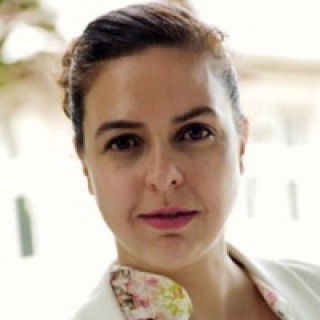Somaya Ben Allouch appointed professor by special appointment of 'Human-System Interaction for Health and Wellbeing'
09-12-2020

Dr Somaya Ben Allouch (1979) has been appointed professor by special appointment of ‘Human-System Interaction for Health and Wellbeing’ at the Faculty of Science of the University of Amsterdam (UvA), with effect from January 1. 2021. The chair was established on behalf of the Bèta Plus Foundation and in collaboration with the Amsterdam University of Applied Sciences (AUAS). Somaya Ben Allouch combines her professorship by special appointment with her position as professor of Digital Life at the AUAS.
Somaya Ben Allouch is a leading expert on the interface of ubiquitous computing, human-computer interaction and health. In her research, she focuses on the interaction between humans and systems; the development, use and evaluation of digital technologies in care and welfare; and information and communication technologies in everyday life.
Human-system interaction
Artificial agents, robotic servants, virtual reality interaction and augmented reality are constantly evolving in both research labs and commercial environments. At the same time, social and economic developments are leading to major challenges within the domains of health and wellbeing. The interest in, and impact of, information and communication technologies is therefore increasing rapidly and human-technology interaction will play a key role in everyday life in the future. Successful integration of systems that make this possible requires a critical look and a deep understanding of the development, use, implementation, and evaluation of human-system interaction. Somaya Ben Allouch will focus on this in her research, within the application domains of health and wellbeing.
Collaboration between UvA and AUAS
As professor by special appointment, Somaya Ben Allouch will fulfil a bridging function between the UvA and AUAS. The chair will be embedded in the UvA's Informatics Institute, where various groups conduct research into intelligent data engineering, intelligent sensor information systems and systems and networks. Somaya Ben Allouch's research also ties in seamlessly with the research theme AI Technology for People, in which the UvA works together with, among others, Amsterdam UMC, Centrum Wiskunde & Informatica, the municipality of Amsterdam, the Netherlands Cancer Institute, the Vrije Universiteit Amsterdam and the AUAS. At the AUAS, research into human-system interaction with a specific focus on health and wellbeing is centred on the 'Digital Life' research group of the Faculty of Digital Media and Creative Industry, and in various educational programmes such as Software Engineering, Technical Informatics, Game Development and Applied Artificial Intelligence.
As a professor at the AUAS and professor by special appointment at the UvA, Ben Allouch will set up interdisciplinary collaboration projects between the two institutions and possibly also develop joint educational programmes. This is also in line with the work of the Applied Artificial Intelligence Centre of the AUAS, in which the AUAS collaborates closely with other Amsterdam knowledge institutions, including the UvA, and the municipality of Amsterdam.
At the UvA, Somaya Ben Allouch will be involved in the education of Bachelor’s and Master’s students in Information Studies and Artificial Intelligence. For example, UvA students can apply their knowledge of AI in AUAS research projects, in real-life contexts within projects focused on healthcare and wellbeing.
About Somaya Ben Allouch
Ben Allouch has been an AUAS professor of Digital Life since October 2018 and head of the Digital Life research group at the Faculty of Digital Media and Creative Industry at the AUAS. She previously led the research group Technology, Health & Care at Saxion University of Applied Sciences and was assistant professor at the Media, Communication and Organisation department of the University of Twente (UT). In 2011 and 2012, Somaya Ben Allouch worked as a visiting researcher at the Ambient Intelligence Lab at Stanford University. She studied Applied Communication Science at the UT and obtained her doctorate there with her thesis The Design and Anticipated Adoption of Ambient Intelligence in the Home.
She has published numerous articles in scientific journals, including the International Journal of Mobile Human Computer Interaction, Journal of Human-Computer Interaction and Journal of Medical Internet Research, and has been a guest editor of the scientific journals International Journal of Distributed Sensor Networks and International Journal of Social Robotics. Since 2012, she has served on the editorial board of Journal of Ambient Intelligence and Smart Environments and she is on the organising committee of the Intelligent Environments 2021 international conference. She was also a project leader of the consortium that developed and introduced the Stopmaatje mobile app to support people when stopping or cutting down on smoking.

